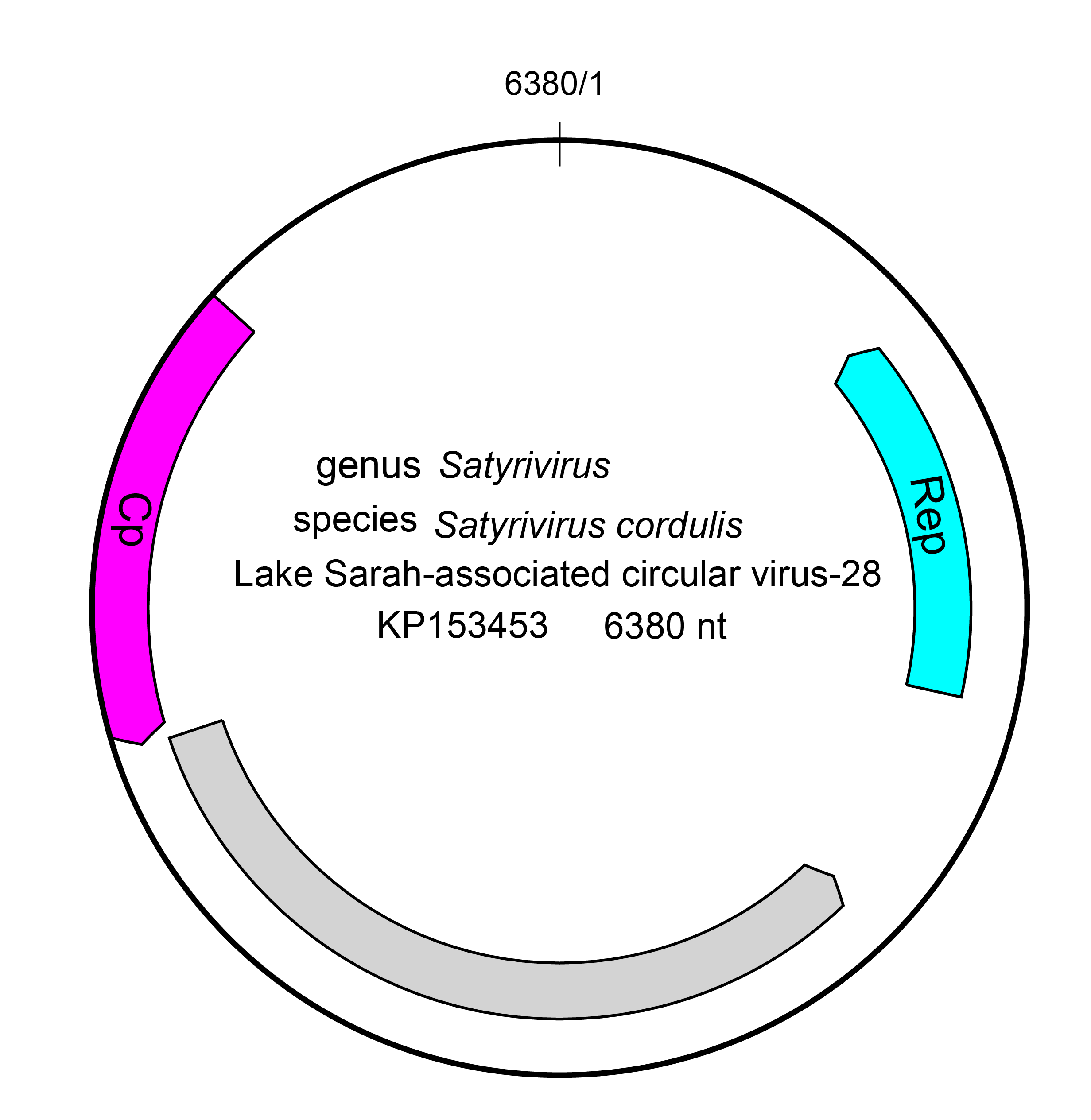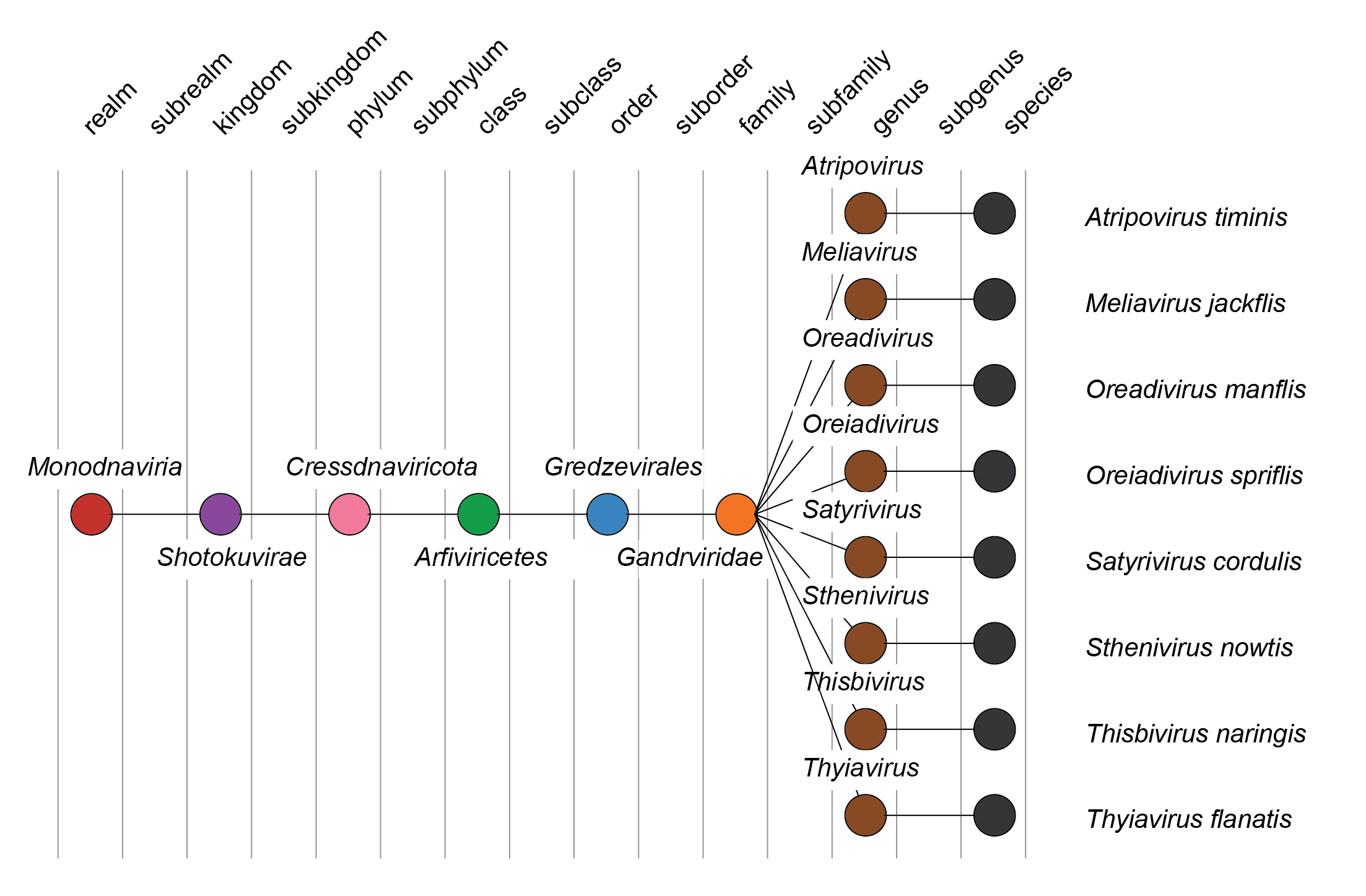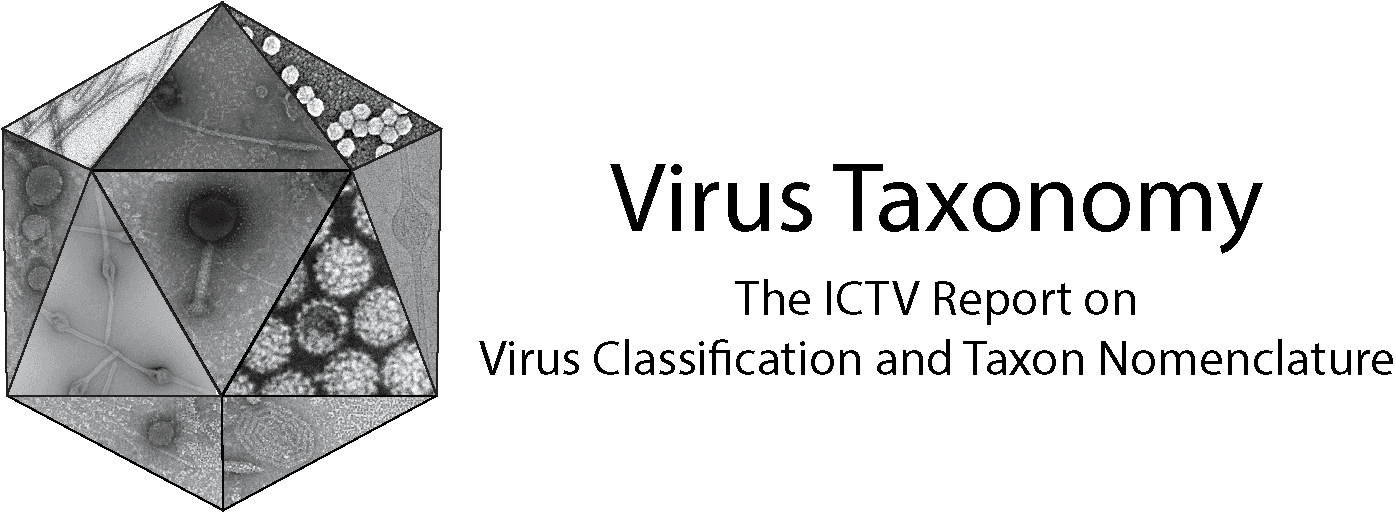Family: Gandrviridae (Interim Report)
This is a summary page created by the ICTV Report Editors using information from associated Taxonomic Proposals and the Master Species List.
Edited by: Arvind Varsani
Posted: November 2024
Summary
The family Gandrviridae includes dsDNA viruses of invertebrates and vertebrates (Table 1 Gandrviridae). The family Gandrviridae was established in 2024 (Master Species List #39).
Table 1 Gandrviridae. Characteristics of members of the family Gandrviridae.
| Characteristic | Description |
| Example | Lake Sarah-associated circular virus-28 (KP153453), species Satyrivirus cordulis, genus Satyrivirus |
| Virion | Unknown |
| Genome | Circular ssDNA(+/-) of 5.2–9.1 kb (Figure 1 Gandrviridae) |
| Replication | Rolling-circle, SF3 helicase |
| Translation | unknown |
| Host range | Invertebrates and vertebrates |
| Taxonomy | Realm Monodnaviria, kingdom Shotokuvirae, phylum Cressdnaviricota, class Arfiviricetes, order Gredzevirales: the family includes 8 genera and 8 species (Figure 2 Gandrviridae) |
 |
| Figure 1 Gandrviridae. Genome organisation of Lake Sarah-associated circular virus-28, a member of the family Gandrviridae. Boxes indicate open reading frames as annotated on GenBank accession KP153453. Rep, replicase protein; Cp, putative capsid protein. |
 |
| Figure 2 Gandrviridae. Taxonomy of the family Gandrviridae. Labels in the column to the right are species names with subgenus names indicated in brackets below. |
Derivation of names
Atripovirus: from Atropos - one of the three Fates
Gandrviridae: from Jörmun gandr, a serpent in Norse mythology equivalent of ouroboros. The prefix "Jörmun-" denotes something huge, the word "gandr" refers to elongated entities, including snakes, referring to the genome circularity of members of the family; the suffix viridae for family taxa
Meliavirus: from Meliae - nymphs of the ash-tree
Oreadivirus: from Oreads - the nymphs of trees, groves, woodlands and mountain forests
Oreiadivirus: from Oreiades - nymphs of the mountains
Satyrivirus: from Satyrs - rustic fertility spirits of the countryside and wild
Sthenivirus: from Stheno - one of the two immortal Gorgons
Thisbivirus: from Thisbe - the eponymous nymph of the Boeotian town of Thebes
Thyiavirus: from Thyia - the Naiad-nymph of Mount Parnassus loved by the god Apollo

